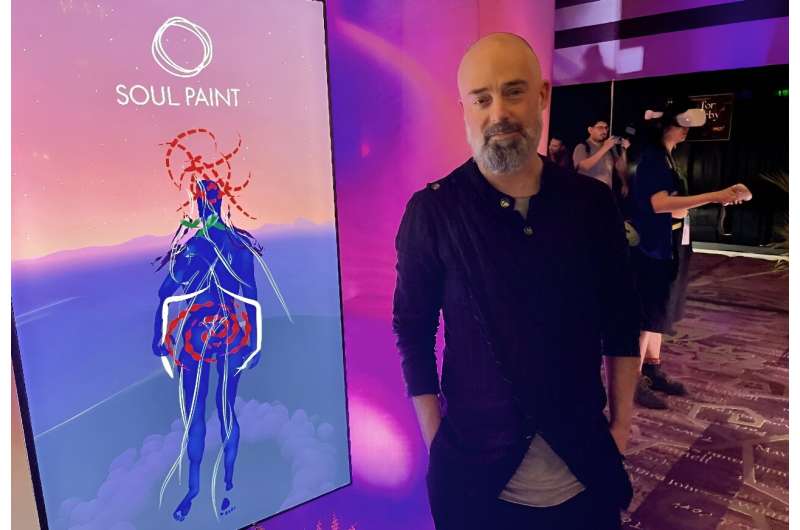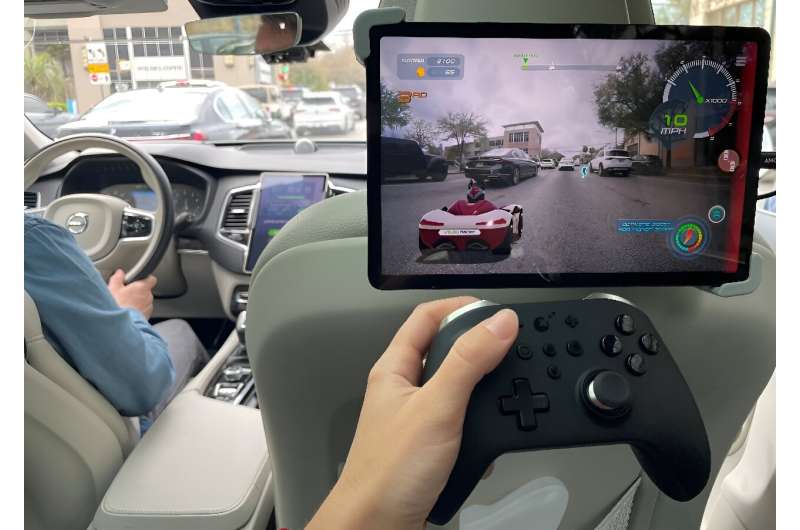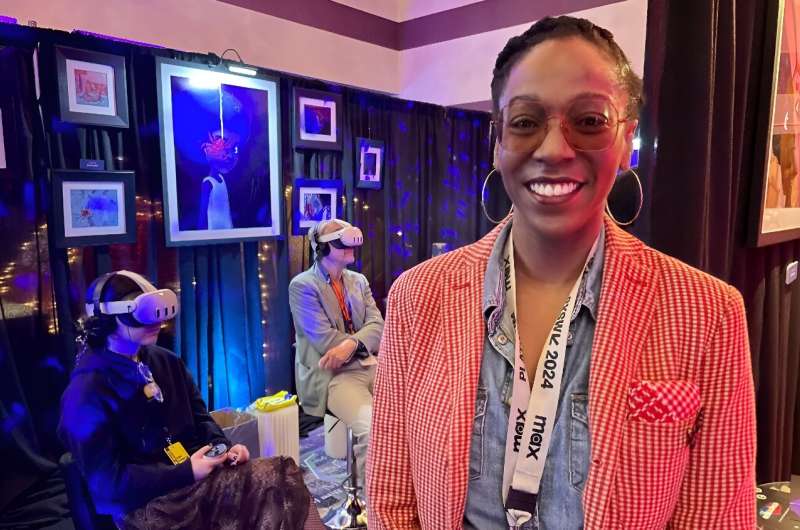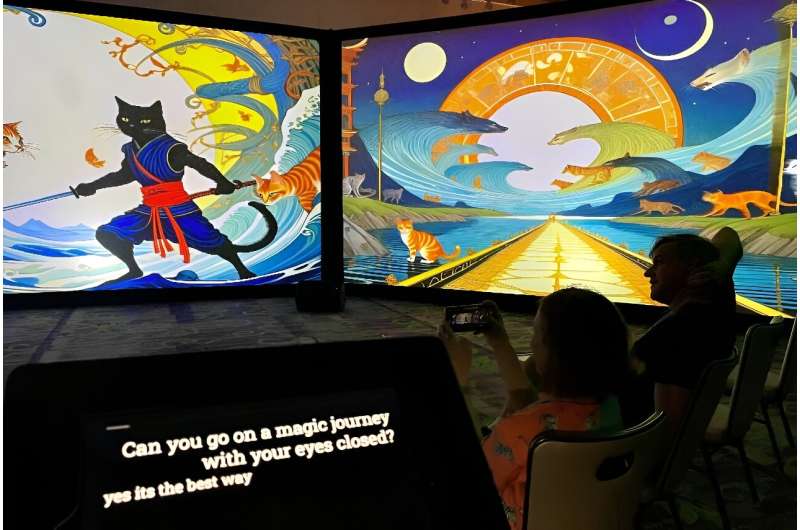
At South by Southwest—the gargantuan Texas festival for cinema, music and tech—artists this year embraced virtual reality as a way to better connect with humanity, not escape it.
VR and augmented reality are often associated with video gaming, or the groundbreaking hardware races underway between tech titans like Apple and Meta—though with little in the way of mass adaptation.
But for inventor Niki Smit, VR is an avenue for humans to express their emotions and explore their mental health, including through the normally explicitly tactile experience of art therapy.
After donning the usual headgear, the user of Smit's "Soul Paint" program is invited to "paint" their virtual body, using colors and lines to explore and express their inner reality.
"When I'm stressed, I clench my teeth—so I draw this pulsating red thing near my jaws," Smit said, demonstrating the software.
"What we've been making here is an invitation to dive into yourself, to explore yourself," he said.
In a massive hall dedicated to VR, demonstrations invited conferencegoers to watch films and test video games, faces pressed against the VR headset.
But at Smit's stand, users emerged looking visibly moved, having smeared their virtual stomachs in sickly green or their heads in gray, and dancing to free themselves from downbeat emotions.

"VR is not an extension of film. VR is not an extension of video games. We're starting to find out it is a medium about your own human body," he said.
Victor Agulhon makes VR documentaries on topics ranging from top chefs to the Kennedy assassination.
"I can't see myself working in any other medium," he said.
"For me it's really this technology, specifically, that enables unprecedented things in terms of understanding and empathy."
Immersive, interactive
"There's an insatiable desire by humans to use storytelling as a way to understand our experience in this world... and you want it to be more immersive with higher interactivity," said Vince Kadlubek, during a panel on the future of entertainment.
Kadlubek is one of the founders of Meow Wolf, an artist collective that now specializes in giant art installations.
From video games to immersive art, a key way to win over audiences is through giving them more interaction and control, he said.

"I don't want to just go into somebody else's world and not have the ability to build something in it, that's so confined," he said, mentioning TikTok and Minecraft as examples of platforms making strides in that area.
For Voyelle Acker, too, immersion is key.
Her studio, Small Creative, develops virtual reality experiences for small groups, in particular to "bring culture to audiences who are sometimes far removed in terms of education or geography."
"Today, we can program anything we want," she said, but "it takes human intelligence to be artistic, to find the right connections."
Creators are in high demand. French automotive giant Valeo came to the conference, known as SXSW, to encourage them to invent the future of in-car entertainment.
Executives introduced a video game for passengers, which uses sensors, cameras and radar to recreate the vehicle's environment in real time—but for play.
"We can imagine interacting with passengers in other cars, involving them in an experience, like sharing music," said Geoffrey Bouquot, Valeo's Chief Technology Officer.

'Cosmic turtle'
"What can the magical feather dress do?" asked a computer in a mini-cinema showing an endless movie called "The Golden Key."
In this work, generative artificial intelligence continuously produces images, narration and voice, but viewers influence the result by answering questions.
"The magical feather dress transcends time and space—woven from loose plastic floating in the ocean, the cosmic turtle repurposed this for good in the world," wrote an audience member.
The innovations on display in Austin, Texas, come as the rise of content-generating AI worries many artists, who fear being replaced by machines.
But Melissa Joyner, director of "Reimagined Volume III: Young Thang," doesn't think AI would have been able to produce her VR-bound animated film, inspired by a Nigerian tale.
Generative AI can be part of the process, but it "is not going to tell you I disagree, it's not another person you respect," she said.
© 2024 AFP
Citation: At Texas arts and tech fest, virtual reality is perfectly human (2024, March 14) retrieved 14 March 2024 from https://techxplore.com/news/2024-03-texas-arts-tech-fest-virtual.html
This document is subject to copyright. Apart from any fair dealing for the purpose of private study or research, no part may be reproduced without the written permission. The content is provided for information purposes only.
